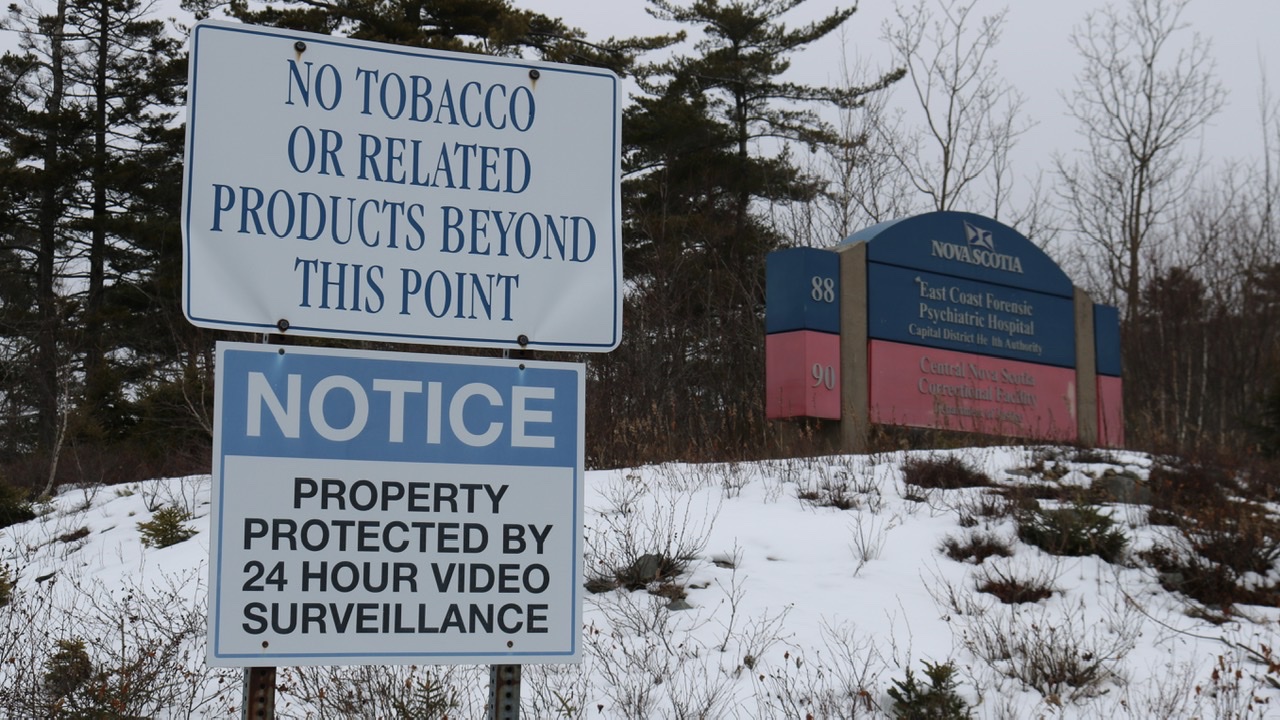Nurses sick after exposure to synthetic THC at forensic hospital in Dartmouth
Nurses at forensic hospital report safety issues, some refuse work

caption
Eight nurses were exposed to synthetic THC at the East Coast Forensic Hospital in Burnside.Several nurses at the East Coast Forensic Hospital in Dartmouth sought medical attention after being exposed to a synthetic drug on New Year’s Eve.
Patients in a rehabilitation unit at the hospital were smoking what is believed to be synthetic THC, said Jason MacLean, president of the Nova Scotia Government and General Employees Union (NSGEU), which represents the nurses.
“We have, I believe, upwards of eight members that had adverse reactions to whatever substance was in the air,” he told The Signal.
He said one nurse was admitted to hospital, two were seen on site and sent home, and the others went to an emergency department but were not admitted. A lockdown occurred immediately after the incident and the drugs were discovered.
MacLean said they believe patients were smoking the drug in one room and the ventilation system recirculated the smoke throughout the unit. The system has since been fixed to have air brought in directly from outside the building to avoid this issue in the future.
Several of the nurses do not feel any safer at work and there have been work refusals, said MacLean. Ten members of the union working at the forensic hospital called a SAFE line to report safety issues.
The union heard about the incident after members called to complain, leading MacLean to demand information from the Nova Scotia Health Authority, which employs the nurses.
What is synthetic THC?
THC is a naturally occurring ingredient in cannabis plants. Synthetic THC is composed of human-made chemicals and is meant to mimic the natural drug. It can be up to four times as powerful as naturally occurring THC, said Jacob Cookey, a specialist in psychotic disorders and addictions at Dalhousie University.
On average, natural cannabis contains about 10 to 13 per cent THC content, but some strains can hold up to 35 per cent before tampering. Synthetic THC can contain up to 80 per cent.
Cookey said theoretically, someone without any previous THC exposure could have potentially dangerous reactions to an amount a substance abuser would take regularly.
“When you use it frequently enough your body gets quite accustomed to it and can process it much more efficiently and quickly,” he said. “It would take more of whatever substance it is to exert the same effect than it would for someone who’s never had it before.”
Some potential effects of synthetic THC exposure include extreme anxiety, confusion, paranoia, hallucinations and vomiting.
MacLean said he is aware of the nurses having headaches and irregular heartbeats.
How did it get in?
The forensic hospital is connected to the Central Nova Scotia Correctional Facility in Burnside. In addition to the nurses, the NSGEU represents guards at the jail.
Because they are co-located, the hospital uses the correctional staff for security, but the correctional policies used to maintain a safe place do not transfer to the forensic hospital.
“It’s been reported to me through the corrections side, that there’s definite gaps in security within the hospital facility,” said MacLean. “But then the hospital itself when we talk to them, they don’t acknowledge these gaps, saying ‘well we’re a hospital first.’ Well, I disagree because most people that go to the hospital are ordered to go to the hospital through the courts.”
MacLean said in the rehabilitation units, patients and visitors can come and go fairly freely out of the facility and into the community.
All patients, regardless of the unit, are not fully searched when they return due to hospital policy, he added. This means employees are unaware of what is being brought in, even though they know their patients are often substance abusers.
“I believe that their hands are tied in terms of the way the facility operates with the policies that are in place,” said MacLean. “So, corrections staff, or corrections policy, cannot overrule the hospital policy on the hospital side.”
Waiting for incident report
The provincial Department of Justice, which oversees the correctional facility, declined a request to comment on the incident with the nurses and said the request should go to the health authority.
In an email to The Signal, Brendan Elliott, a spokesperson for the health authority, said they are not prepared to comment yet but will do so when the information is ready.
MacLean said he’s waiting for a full incident report from the health authority after requesting it on Jan. 17.
Investigation ongoing
On Monday, the health authority said an investigation is ongoing.
Rachel Boehm, director of mental health and addictions, said in an email that an action plan will be created after the investigation closes. That plan will be based on the recommendations from the health authority’s investigators.
About the author
Ellery Platts
Ellery is a fourth year student in the BJH program at King's. She is extremely passionate about sports and photography.

T
Trish
R
Robbi Hatcher
M
Marie
M
Michael
M
Michael